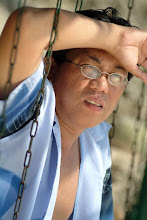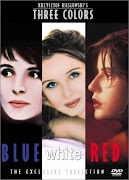 IN A LITTLE WHILE the pageantry of this year's Oscars Awards will be history. But before the drum roll starts for the winners, I'm sticking my neck out for my preference (up yours, Roger Ebert!) among the Best Picture contenders.
IN A LITTLE WHILE the pageantry of this year's Oscars Awards will be history. But before the drum roll starts for the winners, I'm sticking my neck out for my preference (up yours, Roger Ebert!) among the Best Picture contenders.True, Alejandro González Iñárritu's Babel is literally a towering achievement. All the accolades heaped on it so far are as unassailable as the sun rising at the East; the audacity of its scope is matched only by the subtlety and immediacy of its insight on the continental drift of despair rippling out of the most intimate instances of miscommunication and alienation.
Up on my feet, no problem, if Iñarritu's epic would win the Best Film. But I'll be howling out of my ears while trotting hot off my shoes if the spotlight would loom large and zoom in on Little Miss Sunshine.
Like summer on the side of nightmare, this film directed by Jonathan Dayton and Valerie Faris zigzags seamlessly around heartbreak and hilarity, reeling on its dark theme--the bumpy ride to happiness and the horror of dreams hitting deadends--with its steadfast engine of intelligence and empathy.
It tracks the cross-country journey on a dilapidated minibus of "a family on the verge of a breakdown." But, aiee, how it veers off the viewers into borders of madness, failure, pain, love, and laughter with such detours of delight.
*** The ceremony just ended. The Departed won. Ok lang, at least Martin Scorcese won at last. If it's any consolation, Little Miss Sunshine took the trophy for Best Original Screenplay (by Michael Arndt) on top of the Best Supporting Actor award to Alan Arkin.

























































No comments:
Post a Comment